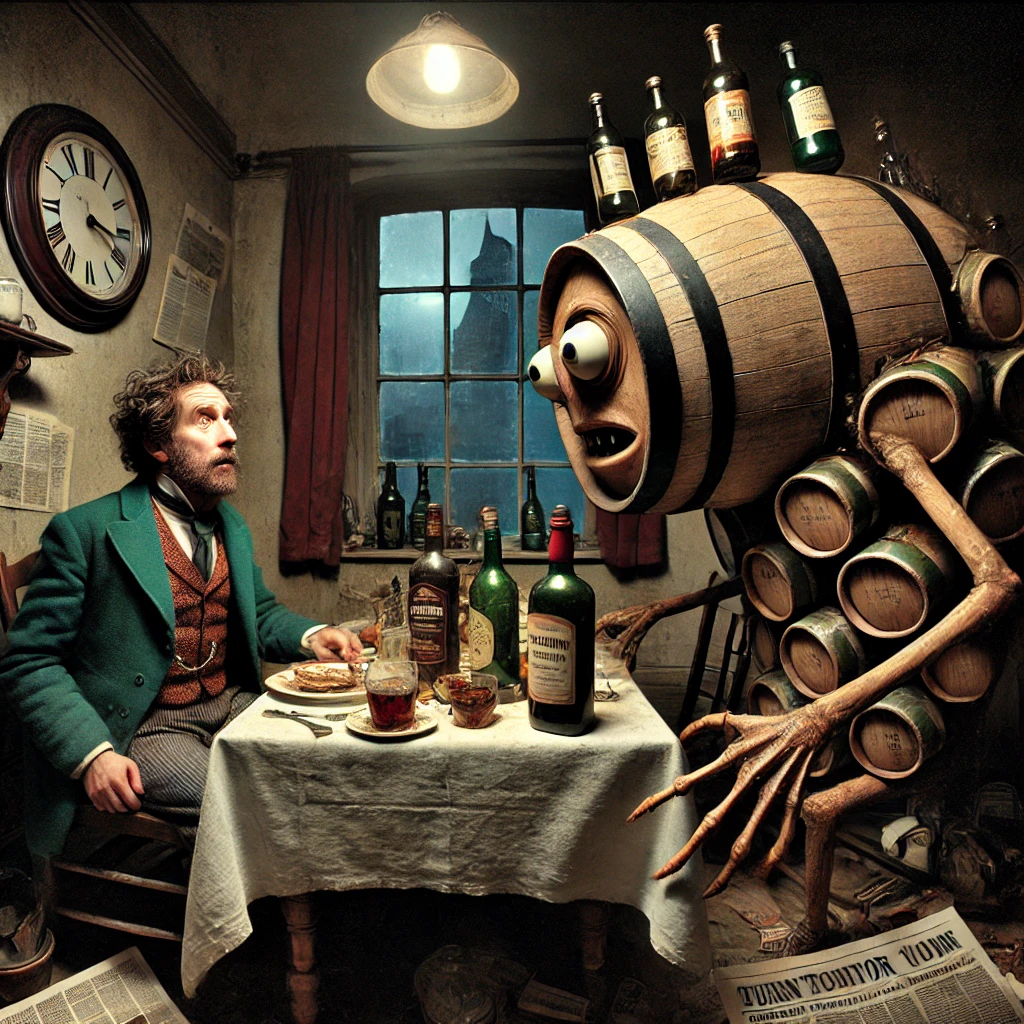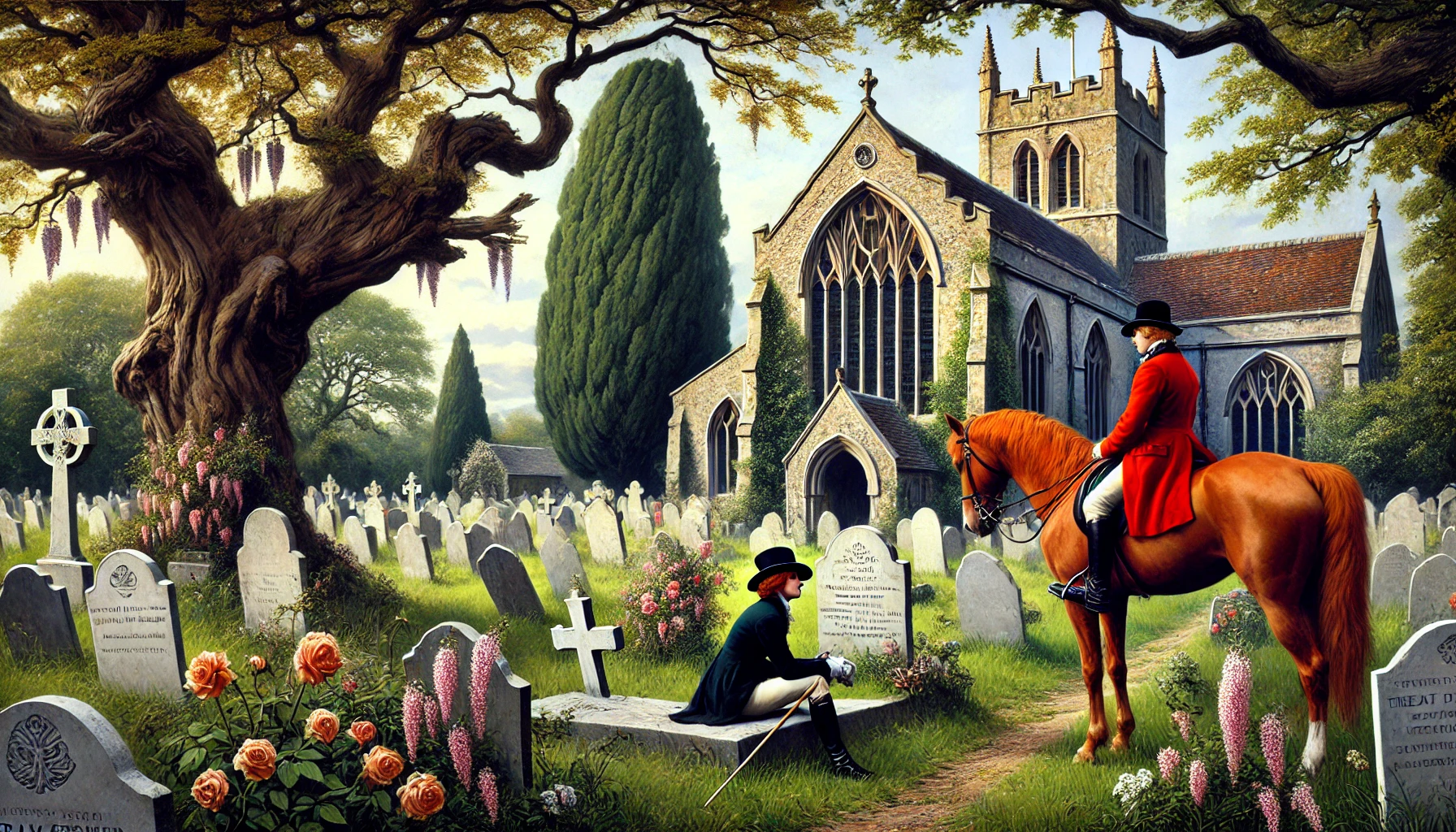“The House of Mirth,” published in 1905, is a novel by Edith Wharton that delves into the life of Lily Bart, a young woman navigating the treacherous waters of New York’s high society in the early 20th century. Set against a backdrop of wealth, opulence, and rigid social norms, the novel explores the consequences of beauty, the pursuit of happiness, and the societal expectations placed on women.
Plot Summary
Lily Bart stands poised on the precipice of New York’s high society, a glittering figure whose beauty draws admiration and envy in equal measure. In a world where wealth and status dictate the course of one’s life, Lily knows her beauty is her greatest asset, her ticket to the luxurious existence she craves. Yet, as she moves through the lavish balls and opulent estates, a sense of restlessness shadows her every step. She desires not just comfort but a sense of belonging and freedom from the rigid expectations placed upon her.
One afternoon in early September, Lily encounters Lawrence Selden at Grand Central Station. Selden, a lawyer of modest means, offers her a fleeting glimpse of a life beyond the superficial. They share tea in his apartment, a sanctuary of tranquility away from the demands of society. Here, Lily can momentarily shed the facade she wears and feel a rare sense of ease. Despite the growing attraction between them, she dismisses the notion of a future with Selden. He cannot provide the wealth she seeks, and to Lily, marriage must be a transaction as much as a union. Nevertheless, their meeting stirs something deep within her, a longing for a different path she is not sure she can follow.
Lily sets her sights on Percy Gryce, a wealthy but dull bachelor who could secure her place in society. She joins a weekend party at Bellomont, the estate of her friends, the Trenors, where she aims to captivate Gryce. Her plan seems foolproof—until Bertha Dorset arrives. Bertha, sensing Lily’s intentions, takes delight in diverting Gryce’s attention. As Bertha’s machinations unravel Lily’s plans, Lily finds herself drawn back to Selden, spending more time with him than with her intended prey. Her distraction costs her dearly, and Gryce slips away, leaving her with a bitter taste of defeat.
Lily’s failure to secure Gryce sets off a chain of events that threatens her precarious position. In an attempt to maintain her lifestyle and social standing, she entangles herself with Gus Trenor, a wealthy man whose intentions are far from innocent. Trenor offers to invest money for her, presenting it as a favor, but Lily soon realizes he expects something in return. When he confronts her, insinuating she owes him more than gratitude, she is horrified and attempts to distance herself from him. Yet, the damage is done; whispers begin to circulate, and her reputation starts to fray at the edges.
Seeking refuge from the growing scandal, Lily turns to her aunt, Mrs. Peniston, hoping for financial assistance. However, Mrs. Peniston, misled by the rumors and disapproving of Lily’s conduct, refuses to help. As Lily’s social circle tightens around her, Bertha Dorset strikes the final blow. During a European trip, Bertha invites Lily, only to betray her. Bertha insinuates an affair between Lily and her own husband, George Dorset, effectively severing Lily’s last ties to respectability. Cast out by her friends and dismissed by her family, Lily returns to New York, alone and destitute.
In her newfound isolation, Lily faces the stark reality of her circumstances. Desperate for income, she takes a job in a millinery shop, a position far beneath the status she once held. The work is exhausting, and the indignities she suffers from her employers and former peers who now look down on her, deepen her sense of despair. Despite her dire situation, Lily clings to a shred of integrity. In her possession are letters that could ruin Bertha Dorset by revealing her affair. Yet, when offered a chance to use them as blackmail, Lily recoils. She cannot bring herself to sink to the level of those who have betrayed her.
Lily’s downward spiral continues as she becomes increasingly dependent on sleeping medication to escape the harshness of her reality. The loneliness and loss weigh heavily on her, eroding her once vibrant spirit. She crosses paths with Selden again, who still harbors feelings for her. In a final, poignant encounter, they share a moment of understanding, but it is tinged with the sorrow of missed opportunities and the realization that the barriers between them have grown insurmountable.
As Lily reaches the end of her tether, she uses the last of her inheritance to repay Trenor, freeing herself from the lingering sense of moral debt. But this act of redemption comes too late. Exhausted, and unable to envision a future for herself, Lily takes an overdose of her sleeping medication, seeking release from the relentless pressures and unfulfilled desires that have haunted her. In the quiet of her modest room, surrounded by the memories of a life that could have been, Lily slips away.
Lawrence Selden arrives the next morning, intent on rescuing her from her plight, only to find that he is too late. As he stands over her lifeless form, he is struck by the tragedy of her death and the unforgiving nature of the society that has destroyed her. He understands now the cost of her beauty and the cruel irony of her fate. In her death, she becomes a symbol of the relentless pursuit of happiness and the devastating consequences of a world that values appearance over substance.
Lily Bart’s story is one of beauty and tragedy, a life spent seeking love and freedom in a world that offers neither without a price. Her downfall is a testament to the rigid social structures that ensnare and ultimately destroy those who cannot or will not conform.
Main Characters
- Lily Bart: A beautiful, intelligent woman caught in the conflict between her desire for luxury and her need for personal freedom. Her struggle to secure her place in society without compromising her integrity leads to her tragic end.
- Lawrence Selden: A lawyer and Lily’s confidant, who represents an alternative life to the one she seeks. Although he loves Lily, he hesitates to fully commit due to his own reservations about her values.
- Bertha Dorset: A manipulative and jealous socialite who feels threatened by Lily’s beauty and potential to attract attention away from her. Her malice plays a significant role in Lily’s social ruin.
- Percy Gryce: A wealthy but uninspiring bachelor whom Lily initially targets as a potential husband for his fortune. His interest in Lily wanes due to Bertha’s influence and Lily’s own ambivalence.
- Gus Trenor: A wealthy man who financially entraps Lily by investing money on her behalf. His actions lead to an implied expectation of sexual favors, putting Lily in a morally compromising position.
Theme
- The Corruption of Wealth and Society: The novel critiques the moral decay of high society, where appearances and financial status dictate one’s worth. Lily’s downfall illustrates how the pursuit of wealth can lead to the loss of personal integrity and happiness.
- The Role of Women: Wharton examines the limited roles available to women in society, highlighting the precarious position of women like Lily, who rely on beauty and marriage for social standing.
- The Conflict Between Personal Desire and Social Expectations: Lily’s internal struggle between her desire for love and personal freedom versus societal expectations and the need for financial security drives the narrative.
- Isolation and Loneliness: As Lily’s social standing diminishes, she experiences profound isolation, showing the harsh reality of a society that values individuals only as long as they conform to its standards.
Writing Style and Tone
Wharton’s writing is marked by a sharp, ironic tone that critiques the superficiality and cruelty of high society. Her prose is elegant and richly descriptive, capturing the opulence of the settings and the intricacies of social interactions. The narrative is infused with a sense of melancholy, underscoring the tragic nature of Lily Bart’s story. Wharton employs a third-person omniscient point of view, allowing readers to delve into the thoughts and emotions of her characters, particularly Lily, which deepens the sense of empathy and inevitability.
We hope this summary has sparked your interest and would appreciate you following Celsius 233 on social media:
There’s a treasure trove of other fascinating book summaries waiting for you. Check out our collection of stories that inspire, thrill, and provoke thought, just like this one by checking out the Book Shelf or the Library
Remember, while our summaries capture the essence, they can never replace the full experience of reading the book. If this summary intrigued you, consider diving into the complete story – buy the book and immerse yourself in the author’s original work.
If you want to request a book summary, click here.
When Saurabh is not working/watching football/reading books/traveling, you can reach him via Twitter/X, LinkedIn, or Threads
Restart reading!








